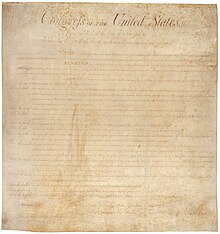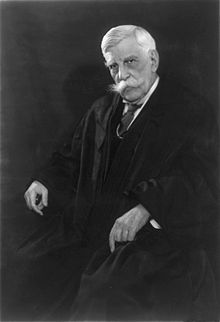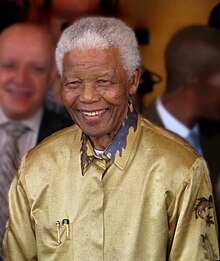Wikipedia:Wikipedia Signpost/2013-08-07/WikiProject report
WikiProject Freedom of Speech
This week, we journey into a WikiProject that focuses about what keeps Wikipedia running, the freedom of speech. WikiProject Freedom of speech was created in 2012 by Cirt, and has 11 pieces of featured material, along with 50 GAs. I had the pleasure of interviewing Crisco 1492, Khazar2, Kiefer.Wolfowitz, Cirt, Int21h, and John Carter.
- What motivated you to join WikiProject Freedom of Speech? Can you describe the project's goals?

- Crisco 1492: In the course of my standard editing about Indonesia, I did a bit of work about individuals who were killed or tried for expressing their views, working to out corruptors, or just publish something contrary to "mainstream" values. When Cirt notified me about this new project, I was happy to join (although I must admit it is secondary to my main focus on Indonesia).
- Khazar2: Similar to Crisco, for me it's an extension of work at another project, in this case WikiProject Human rights. Those two have obvious overlap--human rights covers a wide range of topics, but in most cases it's the freedom of speech/press/conscience cases that tend to get into the history books rather than, say, illegal searches and seizures.
- Kiefer.Wolfowitz: I contributed minor edits to Freedom Watch's Freedom in the World and I have often cited John Milton's Areopagitica. The project promotes awareness of free thought on Wikipedia, and so it should encourage editors to stop referring to disagreements, dissent, and deviance as "disruption" or "drama"---two words that are as deadly to thought on Wikipedia as "the community".
- Cirt: I created WikiProject Freedom of speech in order to serve as a central location for collaboration on quality improvement projects on topics related to freedom of speech, and hopefully encourage contributors to improve articles on the subject to Good Article and Featured Article levels of quality.
- Int21h: I joined to keep up with current issues (although I must admit I just added the talk page to my watchlist), to "voice" my support of this important issue, and to converse with other interested individuals.
Have you contributed to any of the project's Featured or Good Articles?

- Crisco 1492: Together with Khazar2 I helped expand CPJ International Press Freedom Awards to featured list status. I have also written a couple articles which reached GA, including Murder of Udin (the murder of a reporter who often covered corruption near Yogyakarta) and Erwin Arnada (the Playboy editor who showed no nudity, then was imprisoned for almost a year).
- Khazar2: Earlier this year I brought First Amendment to the United States Constitution up to GA, and I'm currently working to get United States Bill of Rights there, too. (Help welcome!) I've brought some individual cases up to GA, too, like Oswaldo Payá, Bassem al-Tamimi, Mam Sonando, and Dhondup Wangchen; all are alleged by at least one side of their controversies to be freedom of speech cases.
- Cirt: Yes, I've contributed towards Featured quality: Portal:Journalism, and Portal:Comedy; Featured Article quality: Freedom for the Thought That We Hate by two-time Pulitzer Prize winner Anthony Lewis; and Good Article quality entries on books about freedom of speech: Cyber Rights by Mike Godwin, Freedom of Expression by Kembrew McLeod, Free Speech, "The People's Darling Privilege" by Michael Kent Curtis, Beyond the First Amendment by Samuel Peter Nelson, and most recently Fuck: Word Taboo and Protecting Our First Amendment Liberties by law professor Christopher M. Fairman. Another fun WP:GA project recently was the documentary film about free speech and word taboo, Fuck (film).
- Int21h: No (maybe? probably not). I have been working on what I consider substantial gaps.
Are there any substantial gaps in Wikipedia's coverage of freedom of speech? If so, what can be done to fill these gaps?
- Khazar2: Gaps include coverage of speech-freedom and press-freedom laws around the world, as well as those imprisoned for violating those laws. This is an area where other WikiProjects, particularly country projects, could be a huge help.
- Kiefer.Wolfowitz: George Anastaplo
deservesfinally has (!) an articlebecause ofdiscussing his Supreme Court case (over his admission to the Illinois Bar because he defended freedom of association, which had a memorable dissent by Justice Hugo Black) and his monograph on the First Amendment to the U.S. Constitution. He is a useful counter-example to the Wikipedia's description of the students of Leo Strauss as "neo-conservative" Jews. - Cirt: I'd like to see better quality coverage of landmark cases related to freedom of speech, for example: U.S. Supreme Court cases including New York Times Co. v. Sullivan (1964), New York Times Co. v. United States (1971), Gertz v. Robert Welch, Inc. (1974), and Hustler Magazine v. Falwell (1988), are all ripe for quality improvement drives.
- Int21h: Non-American (e.g. freedom of speech by country) and sub-national articles. Also, freedom of speech is a legal and governmental issue: legal systems ("Law of..."), including the basic structure and practical functioning of judicial systems ("Courts of..."), which is itself a governmental issue ("Government of..." or "Governance of..."), are a fundamental aspect in its understanding. To understand freedom of speech in the United States you must understand the law of the United States and the judiciary of the United States, and to understand these you must understand the law of California and the judiciary of California etc.; to understand freedom of speech in Germany you must understand the law of Germany and the judiciary of Germany, and to understand these you must understand the law of Bavaria and the judiciary of Bavaria etc.
Do you encounter any difficulties finding reliable sources for articles about freedom of speech? Are there any useful repositories of information about freedom of speech that can be used for sourcing Wikipedia articles?

- Crisco 1492: A lot of the press sources, especially from areas with particularly authoritarian governments, are far from neutral. As such, finding information on an arrested individual's position or their worldview must come from pro-Human Rights NGOs... which also clearly have their own POV. It is a balancing act, and it can be quite difficult.
- Khazar2: What Crisco said!
- Cirt: Some of the books mentioned above are good quality sources of information on the history of freedom of speech, specifically including: Freedom for the Thought That We Hate, Cyber Rights, Free Speech, "The People's Darling Privilege", Beyond the First Amendment, and Fuck: Word Taboo and Protecting Our First Amendment Liberties. A useful untapped repository of information would be the historical cases documented by the Electronic Frontier Foundation and the Citizen Media Law Project.
- Int21h: Civil society organisations are the #1 resource for these issues, and many of their publications can be found online. News media/press organisations are good for current issues but provide transient, incomplete and shallow coverage and are sparse with sources. Books and law reviews/journals are good, but access is problem, even with Google Books. The US is very aware of both freedom of speech and the practical state of the law, and has strong and diverse civil society organisations. (The ACLU is single-handedly responsible for a large majority of major American freedom of speech common law.) The EU has a growing awareness and a burgeoning civil society, although I know of no equivalent to the ACLU. The rest of the world is a giant black hole IMO (is there a nationally-based civil society category?), of which we would know nothing about if it weren't for US and EU civil societies, although I am sure much of it is because of language barriers. A strong civil society is required because although there may be various organisations, they can be very POV so you need a bunch discussing the same issue from different perspectives.
- John Carter: There could be a bit better coverage of the topic in reliable sources. In general, reference books, like encyclopedias and some others, generally offer a fairly good source for overall coverage of the topic, ensuring all the major topics get some attention and the like. Unfortunately, although I have seen a few reference books devoted to the First Amendment of the US Constitution, I haven't seen any which specifically deal with the subject of freedom of speech in the broader world. That can make developing content related to non-US freedom of speech a bit more difficult. And, yes, there are some countries, like some Asian countries, where freedom of speech may be perhaps more of a political buzz-word than a true reality.
I noticed that one of your open tasks is to expand articles in the freedom of speech category. How high of an importance is that to you, and how does the categorization aid in building these articles?
- Cirt: Categorization is a great aid to help identify and build these articles. Good sources for improvement projects include Category:Stub-Class Freedom of speech articles and Category:Start-Class Freedom of speech articles. Lquilter (talk · contribs) has been a great help in categorizing pages and articles related to freedom of speech.

What are the project's most urgent needs? How can a new contributor help today?
- Crisco 1492: I think new contributors have a plethora of choices available. There are numerous cases of people being imprisoned for expressing unpopular views, many of which don't have an article, and there are also dozens of high priority topics related to freedom of speech which are not as developed as they should be. There's been work on that second area; Khazar2 and Midnightblueowl recently did fantastic work on Nelson Mandela, for instance, but new collaborators are always welcome.
- Cirt: New contributors can start participating and help the project in several ways: (1) List yourself as a participant in the WikiProject, by adding your username here: Wikipedia:WikiProject_Freedom_of_speech#Participants. (2) Add userbox {{User Freedom of speech}} to your userpage, which lists you as a member of the WikiProject. (3) Tag relevant talk pages of articles and other relevant pages using {{WikiProject Freedom of speech}}. (4) Join in discussion at Wikipedia talk:WikiProject Freedom of speech. (5) Notify others you think might be interested in Freedom of speech to join the WikiProject.
- Int21h: Make a horrible 2 sentence article on a local institution or name-able mechanism, person or incident (or preferably a good article!) that somehow regulates, "chills" or punishes access to or production of any sort of information, whether or not it is academically researched or a locally recognized problem, or just different from our oppressed Western bourgeois morality. Add the {{WikiProject Freedom of speech}} template to its talk page. It will possibly get deleted by the WikiNazis before anyone can do something with it, but at least we get a heads-up it is important to someone, and a possibly important lead on the practical functioning of that place's legal system.
Is there anything else you'd like to add?
- Cirt: Come join WP:WikiProject Freedom of speech and join in the efforts to improve articles related to freedom of speech! It's fun and educational at the same time! :)
- Int21h: I thank buffbills7701 for bringing this to my personal attention, as I had forgotten to add the WikiProject Talk to my watchlist. I would also like to thank Cirt for taking the initiative to separate human rights and civil rights from freedom of speech (which is often ignored, minimized, and perverted under the guise of human rights) and give it a WikiProject of its own and bringing it to my personal attention.
Finally, I have a few words to stamp into your mind. They are, don't forget to check out the archives!



Discuss this story
Request for suggestions
Attacks on free speech by Oliver Wendell Holmes, Jr.
Pictured above, Justice Oliver Wendell Holmes, Jr.. wrote the notorious decision upholding the federal government's criminalizing dissent during World War I (Schenk v. United States), and so he should be recognized as an enemy of free speech.
Holmes also supported forced sterilization. Kiefer.Wolfowitz 12:57, 10 August 2013 (UTC)[reply]